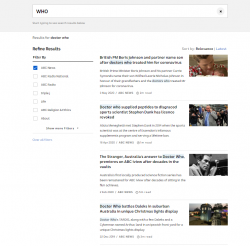- Joined
- Jan 26, 2011
- Posts
- 30,143
- Qantas
- Platinum
- Virgin
- Red
South Australian schools only closed for 1 week just prior to Easter school holidays. All students of all ages could attend. Schools resumed in full the day after Anzac Day. There has not been any positive cases in school kids since early April and which was associated with a teacher returning from overseas and the Qantas baggage handlers. So yes, the theory was correct. SA school students have not missed any part of this year of formal school work.is interesting to see some of the data analysis that has been coming out looking at what worked and what didn't. What struck me is that much of the data supports there was no real need for mass school closures. So I think perhaps the Aust government was right to hold out on the school closure thing, despite the media hysteria demanding the close them (and as soon as they did, started demanding they open them


















